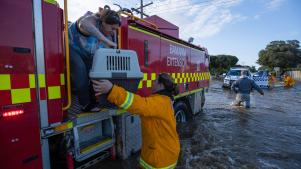On 1 October 2018, changes were introduced into the Heavy Vehicle National Law (HVNL) regarding Chain of Responsibility (CoR), whereby all parties in the supply chain have a shared safety management responsibility to reduce risks in relation to heavy driving transport activities.
The new changes to Chain of Responsibility are available by clicking here.
Similar to existing workplace health and safety laws, the changes provide for a more preventative approach to the safety of drivers. Before the changes, parties within the supply chain were only held responsible once a safety breach was made by the driver. With these new changes, every party within the supply chain has a primary duty to identify, assess, reduce or wherever possible, remove safety risks for heavy vehicle drivers. Parties responsible within the supply chain include, but are not limited to:
- Loading manager
- Consignee
- Operator
- Consignor
- Scheduler
- Packer
- Loader
- Employer
- Executive officer
- Prime contractor
What you need to know
Members will need to be aware that they could be part of the supply chain whenever they send or receive goods using a heavy vehicle with a gross vehicle mass of more than 4.5 tonnes. As such, it is important that members adhere to these new changes to remain in compliance.
Non-compliance to the primary duty of reducing safety risks for heavy vehicle drivers from those within the supply chain will result in fines at a level similar to those under workplace health and safety laws.
Below are examples of common breaches of CoR obligations:
- Business practices or demands that cause a driver to breach fatigue management requirements or speed limits
- Failing to weigh, measure or secure loads
- Setting schedules with unrealistic timeframes
- Causing delays in loading and unloading
- Packing goods incorrectly
- Failing to consult or engage with other parties to ensure safe practices
- Entering terms in contracts and arrangements that encourage, reward or give incentives to the driver or other parties in the supply chain to breach the law
Examples of activities where chain of responsibility obligations could potentially apply in the context of construction activities include:
- Transportation of precast concrete panels
- Frame and truss deliveries
- Crane operations
- Concrete pump operations
The National Heavy Vehicle Regulator has advised all parties within the heavy vehicle supply chain to adopt a Safety Management System to aid in compliance to the new changes.
For more information on the new changes, please contact the Master Builders’ OHS department on (03) 9411 4569.





